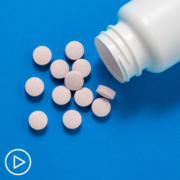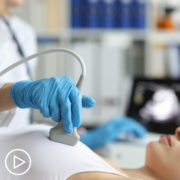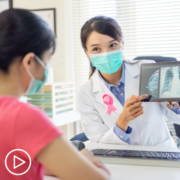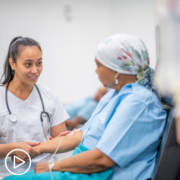Can Lifestyle or Supplements Impact CLL Treatment Response?
Can Lifestyle or Supplements Impact CLL Treatment Response? from Patient Empowerment Network on Vimeo.
Can chronic lymphocytic leukemia (CLL) patients use supplements or lifestyle changes to impact treatment response? Expert Dr. Danielle Brander shares her perspective and information from other cancer studies.
Dr. Danielle Brander is an Assistant Professor in the Division of Hematologic Malignancies & Cellular Therapy at Duke University Medical Center. Learn more about Dr. Danielle Brander.
Download Resource Guide | Descargar Guía en Español
Related Programs:

|

|

|
Transcript:
Lisa Hatfield:
So we have another patient who is concerned about chances of relapse and is asking if there are any lifestyle changes through diet and supplements or anything that you can speak to that may enhance their response or their duration response to the treatment?
Dr. Danielle Brander:
Yeah. So a very very great question to bring about. And this is the one area, understandably where many of us feel frustrated because we can’t tell patients specifically that this trial has been done and says this specific diet is helpful or this specific lifestyle change is helpful to make the treatment work for longer. I think some of that is because some of the general advice we give meaning maintaining daily activity or a well-balanced diet sound non-specific or simple, but I think do help in patients staying in an overall general health wellness so that they can benefit from the treatment and potentially have less side effects from the therapy.
But getting back to the question we just talked about, I think certainly trials or studies really need to be continuing to look at this, because I think there likely are things that we can be more specific to patients about. There are studies looking at physical fitness and exercise regimens not necessarily specific to CLL, although there are studies being done in that space, but to other cancers showing that physical activity and exercise can help even for patients not on treatment maintain control of their cancer. So general daily activity and exercise are important in studies that look at how do you tailor that to an individual I think are important too.
Share Your Feedback
Create your own user feedback survey






